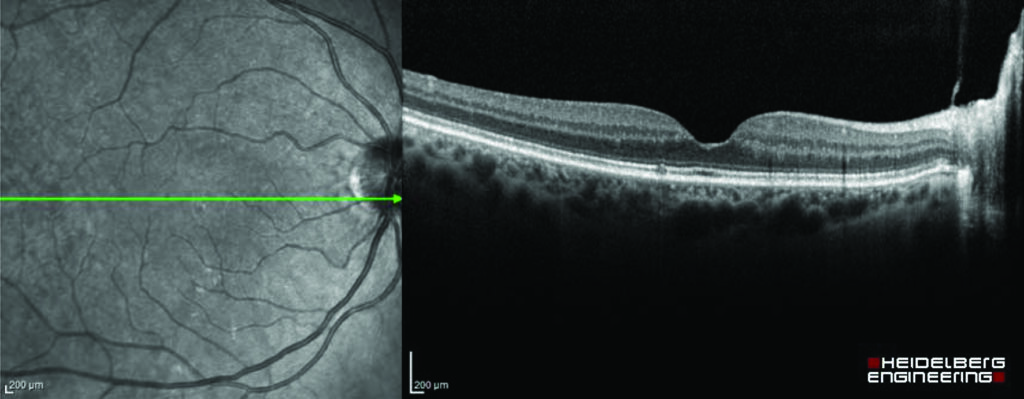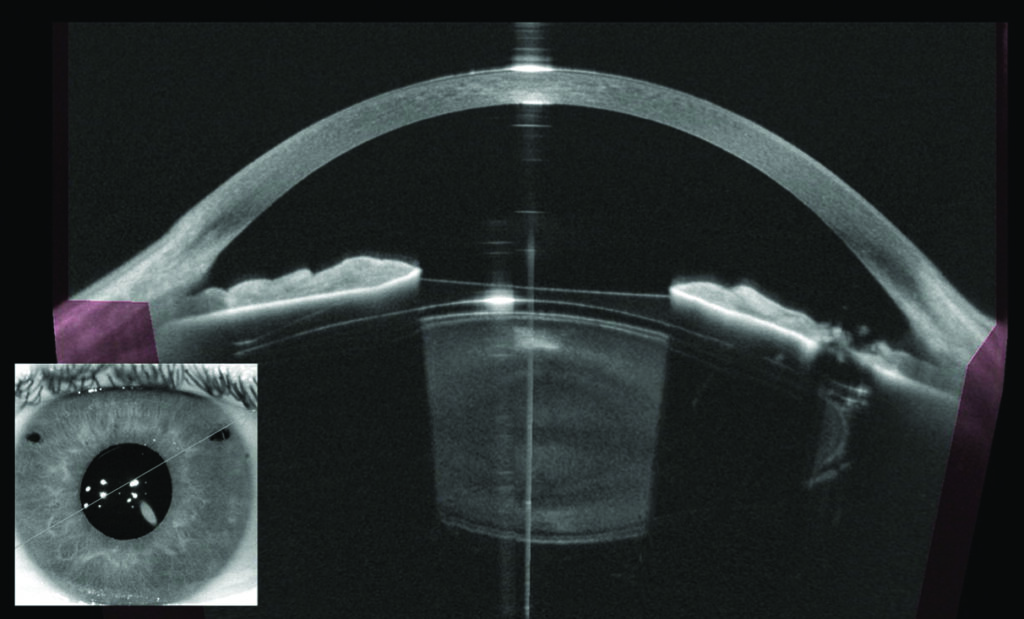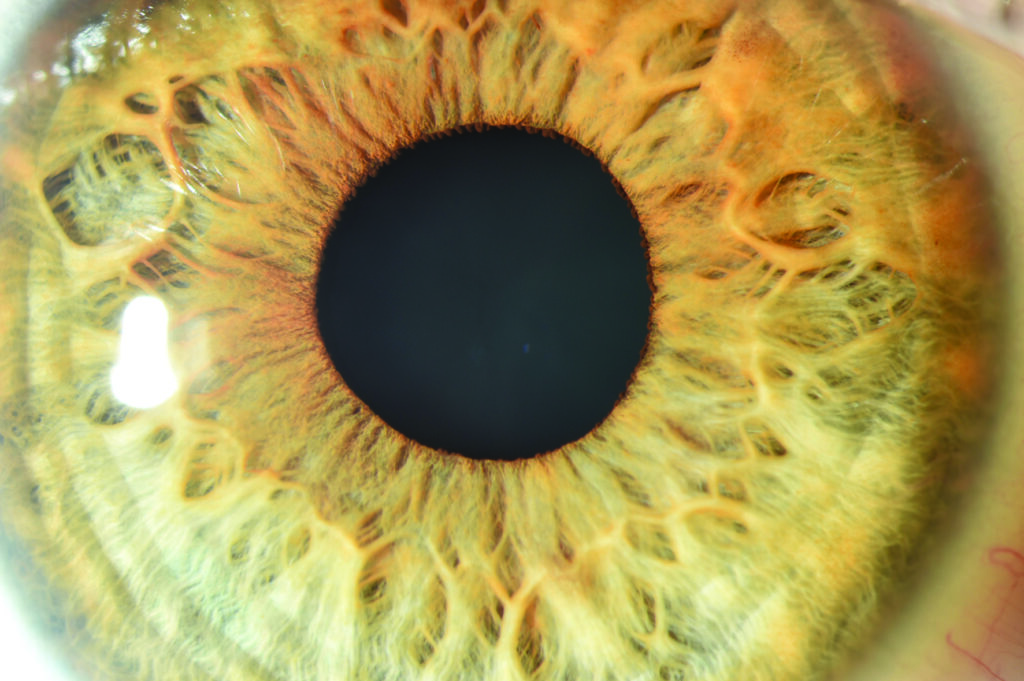Introduction
During your eye clinic appointment at the Leeds Teaching Hospitals, you may need to have your eye scanned or photographed.
This is to help diagnose your eye condition and/or keep an accurate record of your eye condition to compare at future visits.
What is an eye scan?
A scan is a visual way of viewing and measuring the inner layers of your eye. The scans can diagnose conditions that are not visible on the surface of the eye and can help to monitor the progression and treatment of the condition.
OCT (optical coherence tomography) scans are the most common types of scans, but you may also have other scans while visiting the eye clinic. All the scans are painless and non-invasive, although we may need to gently lift up your eye lids. The scans only take a couple of minutes.


What is a retinal photograph?
You may need the retina inside your eye photographed at your eye clinic appointment. This will help the doctor look inside your eye and keep an accurate record for any future visits.
Retinal photographs are a very common procedure. Nothing touches your eye, although we may need to gently lift up your eye lids. There is a bright flash as the photograph is taken so please tell the photographer if you have sensitive eyes.

What is an anterior segment photograph?
During your eye clinic appointment you may need the outside of your eye (anterior segment) photographing to keep an accurate record of your eye condition.
This can help the doctor to diagnose, plan treatment and record your condition.

Do I have a choice about whether to have photographs or scans?
Yes. As with any medical procedure, your doctor should explain why the photograph or scans are needed and what they will be used for. You will always be asked for your permission before the image is taken.
What will the photographs or scans be used for and who will see them?
The photographs and scans will only be used by health professionals involved in your care. They are stored in a secure database.
They may also be used for:
- Medical education of staff within Leeds Teaching Hospitals
- Medical research
- Publication. If this is the case, you will be told which publication the image will appear in
In all cases, you will be asked to give your consent for these uses. If you change your mind afterwards you may withdraw your consent.
How many photographs or scans will I have?
Your consultant will advise you on when a photograph or scan is necessary. This may be at every appointment or once a year.
Having lots of photographs or scans is not harmful to your health; you can have as many photographs or scans as needed.
How long are the images kept?
A digital file is securely stored in an image database. The images are kept for the same length of time as your medical records and are covered by the Data Protection Act.
We understand that you may feel nervous about having a photograph or scan and we will try to make the experience as quick and simple as we can for you.
When you go home
Most patients do not have any problems after they leave clinic. If you begin to feel unwell, please contact your own GP.
If you have any questions about your ophthalmic photography, please feel free to discuss this with one of our ophthalmic photographers during your visit, or contact us on:
You can also contact us at the Medical Illustration central service point:
For any other queries please contact the Leeds Teaching Hospitals switchboard on: